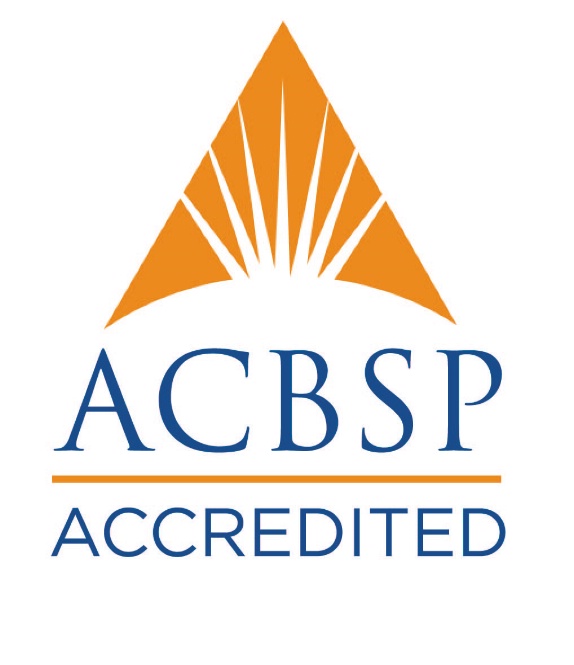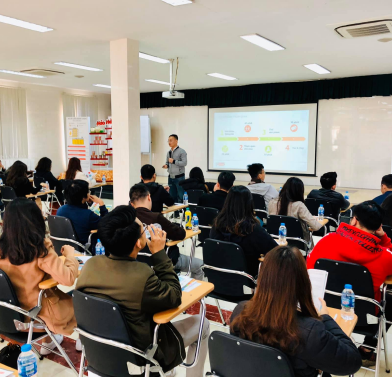
UNDERGRADUATE PROGRAMS
POHE Program
The Profession-Oriented Higher Education (POHE) program, which operates under the Vietnam-Netherlands Higher Education Project, was initiated in early 2005 with the aim of enhancing students’ professional capacity by designing academic programs that cater to the requirements of the labor market. This project primarily focuses on implementing the groundbreaking policy of “education according to social needs” proposed by the Ministry of Education and Training (MoET), and it aims to establish a policy for an application-oriented training model. Since 2005, the National Economics University, with the assistance of Dutch experts, has been developing POHE programs for Tourism and Hospitality. The university began enrolling students in these programs in 2008.
The POHE programs offered at the National Economics University comprise 7 majors, namely: Tourism and Travel Service Management (specializing in Tourism Management), Hotel Management (specializing in Hotel Management), Marketing (specializing in Marketing Communication), Commercial Business (specializing in Commercial Business Management), Law (specializing in Business Law), Commercial Business (specializing in Market Management), and Banking (specializing in Valuation).
PROFESSION-ORIENTED HIGHER EDUCATION (POHE)
POHE Programs
About
- POHE Program Regulation
1. POHE Major in Hospitality Management
- General Introduction
- Framework of the POHE Training Program in Hospitality Management

Training Objective:
To train high-quality Hotel Management (POHE) bachelors who possess good moral qualities, loyalty to the country, and the ability to creatively and effectively apply the Party and State’s policies and guidelines in practical work; who are physically fit to carry out assigned duties; and who have solid foundational knowledge in business administration.
Specific Objectives:
Knowledge:
- Graduates have fundamental and modern knowledge of business administration in general, and tourism and hotel management in particular, especially in-depth knowledge of hotel operations.
- Bachelors in Hotel Management are proficient in English across tourism and hospitality-related professional fields, and capable of planning, developing strategies and business plans, organizing business activities, and establishing new tourism and hospitality businesses.
- Bachelors in Hotel Management possess the following core skills:
- Delivering accommodation, food and beverage, and tourism services
- Planning and developing business ideas
- Creating vision, strategies, and policies for business development
- Managing and improving business processes
- Human resource management
- Service development and marketing
- Communication
- Social responsibility and business ethics
- Recognizing and adapting to cultural differences
- Building and managing personal development plans
- Proficiency in IT and English.
Work Ethic and Attitude:
- Able to work independently and take personal responsibility
- Possess a high level of creativity and professional commitment
Career Opportunities after Graduation:
Graduates can work in managerial, supervisory, and executive roles in:
- Accommodation and food and beverage businesses
- Tourist transportation companies
- Tourism service providers at tourist sites, resorts, and tourist cities
- Companies investing in tourist sites and resorts
- Convention centers, exhibition centers, and integrated resorts and entertainment complexes
- Starting and managing new businesses in accommodation and food services
Graduates are also qualified to work in government and non-government organizations related to tourism and hospitality, educational and research institutions, and project management boards in the tourism and hotel sector.
2. POHE Major in Tourism Management
- General Introduction
- Framework of the POHE Training Program in Tourism Management

Training Objective:
To train high-quality Travel Management (POHE) bachelors who possess good moral qualities, loyalty to the country, and the ability to creatively and effectively apply the Party and State’s policies and guidelines in practical work; who are physically fit to carry out assigned duties; and who have solid foundational knowledge in business administration.
Specific Objectives:
Knowledge:
Graduates have fundamental and modern knowledge of business administration in general, and travel management in particular, especially in-depth knowledge of travel industry operations.
Skills:
Travel Management graduates are proficient in English in professional tourism and travel-related fields. They are capable of planning, developing policies, strategies, and business plans, organizing business activities, and establishing new travel and tourism businesses.
Travel Management graduates possess the following core skills:
- Delivering travel and tourism services
- Planning and developing business ideas
- Creating vision, strategies, and policies for business development
- Managing and improving business processes
- Human resource management
- Service development and marketing
- Communication
- Social responsibility and business ethics
- Recognizing and adapting to cultural differences
- Building and managing personal development plans
Work Ethic and Attitude:
Graduates are able to work independently, take personal responsibility, and demonstrate a high level of creativity and professional commitment.
Foreign Language and IT Proficiency:
Proficient in both English and Information Technology.
Career Opportunities after Graduation:
Graduates can work in managerial, supervisory, and executive roles in:
- Travel agencies and tour operators
- Tourist transportation companies
- Tourism service providers at tourist sites, resorts, and tourist cities
- Companies investing in tourist sites and resorts
- Administrative departments in organizations responsible for event planning and management
They can also start and manage new travel and tourism businesses, or work in government and non-government organizations related to tourism, training and research institutions, and project management boards in the travel and tourism industry.
3. POHE Major in Marketing Communication
- General Introduction
- Framework of the POHE Training Program in Marketing Communication

Training Objective:
To train high-quality bachelors in Marketing Communication (POHE) who possess good ethical values, and have comprehensive and in-depth practical knowledge and skills in marketing communication activities.
Specific Objectives:
Knowledge:
Graduates will have comprehensive knowledge of socio-economics, business administration, and marketing, as well as specialized knowledge in marketing communication. In particular, professional knowledge is closely linked to practical experience in real working environments.
In-depth specialized knowledge includes:
- Researching communication activities
- Developing marketing communication plans and strategies
- Brand building and development
- Managing specific marketing communication activities such as advertising, promotions, public Relations (PR), direct marketing, etc.
Skills:
Graduates are capable of working independently, leading teams, and analyzing and synthesizing information to make effective decisions.
They also have skills in planning and implementing professional tasks, teamwork, communication and presentation, creative thinking, and design.
Work Ethic and Attitude:
Graduates possess strong professional ethics, creative thinking, decisiveness, discipline, and the ability to work under high pressure.
Foreign Language and IT Proficiency:
Graduates are proficient in English and able to use it effectively in professional communication and work.
They also have strong IT skills, including the ability to use creative design software and tools for managing communication activities.
Career Opportunities after Graduation:
Graduates can work in communication departments of businesses, organizations, and state management agencies, such as advertising departments, PR departments, brand development units, and marketing departments.
They are also qualified for managerial positions in marketing communication service companies such as advertising agencies, PR firms, event organizers, and brand consulting firms.
4. POHE Major in Business Law
- General Introduction
- Framework of the POHE Training Program in Business Law

Training Objective:
The Applied Business Law Program (POHE) trains bachelors who possess strong ethical values and comprehensive, in-depth knowledge and skills in various fields of law, especially business law. The program emphasizes close collaboration between the training institution and the labor market to ensure that graduates have strong employment opportunities and are ready to meet the practical demands of employers right after graduation.
Skills:
Based on the training philosophy of combining theory with practice and focusing on skill development through real-world tasks – “learning by doing”, students are guided and gradually become familiar with:
- Writing academic essays
- Drafting advisory and litigation documents
- Teamwork skills
- Case file analysis
- Drafting legal documents and contracts
- Basic legal consulting to address legal issues arising in management and business activities
Key Competency Areas:
- Drafting and managing legal documents of the organization
- Performing basic legal tasks integrated into daily operations
- Ensuring compliance with legal regulations and minimizing legal risks due to lack of legal knowledge
- Drafting, negotiating, and resolving contract-related issues in business and commerce in accordance with legal regulations
- Anticipating and preventing legal risks arising from contracts through legal knowledge
- Resolving legal issues that arise in organizational operations
- Providing legal services to individuals and organizations in need
Work Ethic and Attitude:
Graduates possess strong professional ethics, creative thinking, decisiveness, discipline, impartiality, objectivity, solid legal expertise, and the ability to work under high pressure.
Foreign Language and IT Proficiency:
Graduates are proficient in English—especially legal English—to effectively communicate and perform professional tasks, meeting the language requirements in the context of international integration.
They also have strong IT skills necessary for office work and are job-ready upon graduation.
Career Opportunities after Graduation:
Graduates can work as specialists in state agencies; as officials in legislative, executive, and judicial bodies; or as legal officers or managers in legal affairs, human resources, or business departments across all types of enterprises.
POHE Applied Business Law graduates are also qualified to work effectively in law firms, legal companies, notary offices, enforcement agencies, commercial arbitration centers, and other legal service organizations.
5. POHE Major in Commercial Business Management
- General Introduction
- Framework of the POHE Training Program in Commercial Business Management

Training Objective:
The Applied Commercial Business Administration Program (POHE) trains graduates with in-depth knowledge of Commercial Business Administration and business operations in enterprises and economic organizations. The program focuses on practical business skills such as market research, business negotiation, and the organization of goods and services in commercial enterprises under international integration conditions. Professional knowledge is closely linked with professional practice through real-world learning environments. In addition to specialized knowledge, students are equipped with personal and social skills, as well as management capabilities through a curriculum designed to integrate theory with real-world working environments. Graduates of the Commercial Business Administration program not only master professional knowledge and skills but also demonstrate teamwork and independent working abilities, possess a professional work ethic, and are proficient in analyzing and synthesizing professional issues to ensure effective performance in their field. They are also equipped with professional ethics and responsibility, a proactive and creative mindset, and strong cooperation and task execution abilities.
Knowledge:
Graduates have in-depth knowledge of Commercial Business Administration and business operations in enterprises and economic organizations.
They are trained in specific professional skills such as market research, business negotiation, and organizing goods and services in commercial enterprises under international integration conditions.
Professional knowledge is applied in real-life professional environments, distinguishing this program from traditional ones—students are trained at commercial enterprises, with 30% of class hours dedicated to practical training in professional skills and tasks.
Competencies:
- Professional Competence:
Graduates have comprehensive and systematic knowledge in the field of commerce and Commercial Business Administration, including business planning and strategy development, market research, business negotiation, sourcing, inventory management, sales, and customer service in commercial enterprises under international integration conditions. - Management Competence:
Graduates are capable of managing commercial operations and business functions such as market research, product sourcing, inventory management, sales, and customer service.
They can manage commercial processes and factors, lead teams, develop staff, and coordinate and resolve business issues effectively. - Adaptability Competence:
Graduates are flexible and adaptable when facing workplace challenges and changes.
They can evaluate opportunities for self-improvement, control and adjust themselves systematically, and creatively and flexibly apply their knowledge and skills to real-world work situations.
Skills:
The Commercial Business Administration program (POHE) is designed to integrate theoretical knowledge with real-world working environments. Therefore, graduates are not only proficient in professional knowledge and skills but also capable of teamwork and independent work, with a professional work style and strong analytical and synthesis skills, ensuring effective performance in their field of expertise.
Work Ethic and Attitude:
Graduates possess professional ethics and responsibility, a proactive and creative mindset, and the awareness and ability to cooperate in completing assigned tasks.
Foreign Language and IT Skills:
Graduates are fluent in English, proficient in office software, and capable of managing business-related IT tools.
Career Opportunities after Graduation:
Graduates can work in commercial enterprises, sales and procurement departments of domestic and international companies, central and local trade agencies, government economic departments, research institutes, and educational institutions specializing in commerce.
6. POHE Major in Market Management
- General Introduction
Training Objective:
The Market Management program equips students with comprehensive knowledge and skills to become graduates with strong political and ethical values, good health, and a high sense of social responsibility. Students will gain fundamental and modern knowledge of economics, state management of business and commerce, as well as in-depth knowledge and skills in market economics, market regulation, and policy formulation in a market economy and international integration context. The program also develops independent research thinking and the ability to continuously update knowledge in response to professional demands.
Specific Objectives
Knowledge, Skills, Self-reliance, and Responsibility:
Graduates meet the output standards specified in Circular No. 07/TT-BGDĐT dated April 16, 2015 issued by the Minister of Education and Training.
Specifically, the POHE Market Management program (specializing in Market Management) aims to develop a set of competencies including knowledge, skills, and attitudes as follows:
Knowledge:
Market Management graduates are equipped with a systematic foundation of basic and modern knowledge in economics, management, social sciences, and humanities.
They have in-depth knowledge of market management operations, including:
- Organization of market management at central and local levels
- Anti-smuggling and anti-counterfeiting operations
- Food and drug safety control in business
- Customs procedures and services, inspection, verification, and product origin
- In-depth legal knowledge, particularly in commercial law and market-related regulations
- Specialized knowledge in commercial economics, international trade, customs, commercial services, and business operations in enterprises and economic organizations
Skills:
Graduates are capable of working effectively in teams and independently, possess a professional work ethic, and are skilled in analyzing and synthesizing professional issues, ensuring efficient performance in the field of market management.
Self-reliance and Responsibility:
Graduates demonstrate a proactive and creative mindset, professional ethics and responsibility, and the awareness and ability to cooperate in completing assigned tasks.
Foreign Language and IT Proficiency:
Graduates meet the required English and IT standards set by the National Economics University.
Career Opportunities after Graduation:
Graduates can work in agencies and organizations with market management functions, institutions involved in trade and market policy research and formulation, and training and research centers related to market management.
Specific job positions include:
- Officials at the General Department of Market Management and its affiliated units
- Officers at provincial Market Management Departments and Inspection Teams
- Staff at agencies responsible for trade and market policy formulation at central and local levels
- Lecturers at universities and colleges offering Market Management programs
- Officers at production and business enterprises, import-export companies, and trading firms
7. POHE Major in Valuation
- General Introduction
Training Objective:
The Valuation program trains bachelors with strong political principles, good moral values, and physical health, as well as a high sense of social responsibility. Graduates will have a solid foundation in economics, finance, and marketing, along with in-depth knowledge and practical skills in valuation. The program fosters independent thinking and the ability to continuously improve knowledge and skills to meet professional requirements.
Specific Objectives
Knowledge, Skills, Self-reliance, and Responsibility:
Graduates meet the output standards specified in Circular No. 07/TT-BGDĐT dated April 16, 2015 issued by the Minister of Education and Training.
Knowledge:
Valuation graduates are equipped with a comprehensive and modern knowledge base in economics, finance, business administration, law, and marketing.
They gain in-depth expertise in asset valuation, including real estate, construction products, businesses, machinery and equipment, intangible assets, and intellectual property.
Students also have the option to study specialized topics in asset management, price management, and marketing in service sectors, including valuation service marketing.
Skills:
Valuation graduates are capable of working both independently and collaboratively in teams.
They possess professional work ethics and are proficient in analyzing and synthesizing professional issues, as well as using valuation-related software effectively to ensure high-quality job performance in their field.
Self-reliance and Responsibility:
Graduates demonstrate a proactive, creative mindset, strong professional ethics and responsibility, and the awareness and ability to cooperate in completing assigned tasks.
Foreign Language and IT Proficiency:
Graduates meet the required English and IT standards set by the National Economics University.
Career Opportunities after Graduation:
Graduates can work in:
- Domestic and international valuation companies
- Government agencies responsible for price management, such as the Ministry of Finance and provincial Finance Departments, as well as local authorities in charge of asset valuation, compensation, and land clearance
- Financial institutions (banks, finance companies, securities, insurance, auditing, etc.) in roles such as business valuation for privatization, stock listing, mergers and acquisitions, financial investment, and asset valuation in insurance
- Strategic consulting firms related to brand licensing, franchising, privatization, etc.
- Auction centers and enterprises involved in asset valuation for sale, transfer, and investment
- Marketing departments of service-oriented companies, especially in the valuation sector
- Real estate companies in asset valuation, investment, development, and asset management
- Research institutes and universities offering research and training in valuation and asset management
- POHE Program Regulation
- General Introduction
- Framework of the POHE Training Program in Hospitality Management

Training Objective:
To train high-quality Hotel Management (POHE) bachelors who possess good moral qualities, loyalty to the country, and the ability to creatively and effectively apply the Party and State’s policies and guidelines in practical work; who are physically fit to carry out assigned duties; and who have solid foundational knowledge in business administration.
Specific Objectives:
Knowledge:
- Graduates have fundamental and modern knowledge of business administration in general, and tourism and hotel management in particular, especially in-depth knowledge of hotel operations.
- Bachelors in Hotel Management are proficient in English across tourism and hospitality-related professional fields, and capable of planning, developing strategies and business plans, organizing business activities, and establishing new tourism and hospitality businesses.
- Bachelors in Hotel Management possess the following core skills:
- Delivering accommodation, food and beverage, and tourism services
- Planning and developing business ideas
- Creating vision, strategies, and policies for business development
- Managing and improving business processes
- Human resource management
- Service development and marketing
- Communication
- Social responsibility and business ethics
- Recognizing and adapting to cultural differences
- Building and managing personal development plans
- Proficiency in IT and English.
Work Ethic and Attitude:
- Able to work independently and take personal responsibility
- Possess a high level of creativity and professional commitment
Career Opportunities after Graduation:
Graduates can work in managerial, supervisory, and executive roles in:
- Accommodation and food and beverage businesses
- Tourist transportation companies
- Tourism service providers at tourist sites, resorts, and tourist cities
- Companies investing in tourist sites and resorts
- Convention centers, exhibition centers, and integrated resorts and entertainment complexes
- Starting and managing new businesses in accommodation and food services
Graduates are also qualified to work in government and non-government organizations related to tourism and hospitality, educational and research institutions, and project management boards in the tourism and hotel sector.
- General Introduction
- Framework of the POHE Training Program in Tourism Management

Training Objective:
To train high-quality Travel Management (POHE) bachelors who possess good moral qualities, loyalty to the country, and the ability to creatively and effectively apply the Party and State’s policies and guidelines in practical work; who are physically fit to carry out assigned duties; and who have solid foundational knowledge in business administration.
Specific Objectives:
Knowledge:
Graduates have fundamental and modern knowledge of business administration in general, and travel management in particular, especially in-depth knowledge of travel industry operations.
Skills:
Travel Management graduates are proficient in English in professional tourism and travel-related fields. They are capable of planning, developing policies, strategies, and business plans, organizing business activities, and establishing new travel and tourism businesses.
Travel Management graduates possess the following core skills:
- Delivering travel and tourism services
- Planning and developing business ideas
- Creating vision, strategies, and policies for business development
- Managing and improving business processes
- Human resource management
- Service development and marketing
- Communication
- Social responsibility and business ethics
- Recognizing and adapting to cultural differences
- Building and managing personal development plans
Work Ethic and Attitude:
Graduates are able to work independently, take personal responsibility, and demonstrate a high level of creativity and professional commitment.
Foreign Language and IT Proficiency:
Proficient in both English and Information Technology.
Career Opportunities after Graduation:
Graduates can work in managerial, supervisory, and executive roles in:
- Travel agencies and tour operators
- Tourist transportation companies
- Tourism service providers at tourist sites, resorts, and tourist cities
- Companies investing in tourist sites and resorts
- Administrative departments in organizations responsible for event planning and management
They can also start and manage new travel and tourism businesses, or work in government and non-government organizations related to tourism, training and research institutions, and project management boards in the travel and tourism industry.
- General Introduction
- Framework of the POHE Training Program in Marketing Communication

Training Objective:
To train high-quality bachelors in Marketing Communication (POHE) who possess good ethical values, and have comprehensive and in-depth practical knowledge and skills in marketing communication activities.
Specific Objectives:
Knowledge:
Graduates will have comprehensive knowledge of socio-economics, business administration, and marketing, as well as specialized knowledge in marketing communication. In particular, professional knowledge is closely linked to practical experience in real working environments.
In-depth specialized knowledge includes:
- Researching communication activities
- Developing marketing communication plans and strategies
- Brand building and development
- Managing specific marketing communication activities such as advertising, promotions, public Relations (PR), direct marketing, etc.
Skills:
Graduates are capable of working independently, leading teams, and analyzing and synthesizing information to make effective decisions.
They also have skills in planning and implementing professional tasks, teamwork, communication and presentation, creative thinking, and design.
Work Ethic and Attitude:
Graduates possess strong professional ethics, creative thinking, decisiveness, discipline, and the ability to work under high pressure.
Foreign Language and IT Proficiency:
Graduates are proficient in English and able to use it effectively in professional communication and work.
They also have strong IT skills, including the ability to use creative design software and tools for managing communication activities.
Career Opportunities after Graduation:
Graduates can work in communication departments of businesses, organizations, and state management agencies, such as advertising departments, PR departments, brand development units, and marketing departments.
They are also qualified for managerial positions in marketing communication service companies such as advertising agencies, PR firms, event organizers, and brand consulting firms.
- General Introduction
- Framework of the POHE Training Program in Business Law

Training Objective:
The Applied Business Law Program (POHE) trains bachelors who possess strong ethical values and comprehensive, in-depth knowledge and skills in various fields of law, especially business law. The program emphasizes close collaboration between the training institution and the labor market to ensure that graduates have strong employment opportunities and are ready to meet the practical demands of employers right after graduation.
Skills:
Based on the training philosophy of combining theory with practice and focusing on skill development through real-world tasks – “learning by doing”, students are guided and gradually become familiar with:
- Writing academic essays
- Drafting advisory and litigation documents
- Teamwork skills
- Case file analysis
- Drafting legal documents and contracts
- Basic legal consulting to address legal issues arising in management and business activities
Key Competency Areas:
- Drafting and managing legal documents of the organization
- Performing basic legal tasks integrated into daily operations
- Ensuring compliance with legal regulations and minimizing legal risks due to lack of legal knowledge
- Drafting, negotiating, and resolving contract-related issues in business and commerce in accordance with legal regulations
- Anticipating and preventing legal risks arising from contracts through legal knowledge
- Resolving legal issues that arise in organizational operations
- Providing legal services to individuals and organizations in need
Work Ethic and Attitude:
Graduates possess strong professional ethics, creative thinking, decisiveness, discipline, impartiality, objectivity, solid legal expertise, and the ability to work under high pressure.
Foreign Language and IT Proficiency:
Graduates are proficient in English—especially legal English—to effectively communicate and perform professional tasks, meeting the language requirements in the context of international integration.
They also have strong IT skills necessary for office work and are job-ready upon graduation.
Career Opportunities after Graduation:
Graduates can work as specialists in state agencies; as officials in legislative, executive, and judicial bodies; or as legal officers or managers in legal affairs, human resources, or business departments across all types of enterprises.
POHE Applied Business Law graduates are also qualified to work effectively in law firms, legal companies, notary offices, enforcement agencies, commercial arbitration centers, and other legal service organizations.
- General Introduction
- Framework of the POHE Training Program in Commercial Business Management

Training Objective:
The Applied Commercial Business Administration Program (POHE) trains graduates with in-depth knowledge of Commercial Business Administration and business operations in enterprises and economic organizations. The program focuses on practical business skills such as market research, business negotiation, and the organization of goods and services in commercial enterprises under international integration conditions. Professional knowledge is closely linked with professional practice through real-world learning environments. In addition to specialized knowledge, students are equipped with personal and social skills, as well as management capabilities through a curriculum designed to integrate theory with real-world working environments. Graduates of the Commercial Business Administration program not only master professional knowledge and skills but also demonstrate teamwork and independent working abilities, possess a professional work ethic, and are proficient in analyzing and synthesizing professional issues to ensure effective performance in their field. They are also equipped with professional ethics and responsibility, a proactive and creative mindset, and strong cooperation and task execution abilities.
Knowledge:
Graduates have in-depth knowledge of Commercial Business Administration and business operations in enterprises and economic organizations.
They are trained in specific professional skills such as market research, business negotiation, and organizing goods and services in commercial enterprises under international integration conditions.
Professional knowledge is applied in real-life professional environments, distinguishing this program from traditional ones—students are trained at commercial enterprises, with 30% of class hours dedicated to practical training in professional skills and tasks.
Competencies:
- Professional Competence:
Graduates have comprehensive and systematic knowledge in the field of commerce and Commercial Business Administration, including business planning and strategy development, market research, business negotiation, sourcing, inventory management, sales, and customer service in commercial enterprises under international integration conditions. - Management Competence:
Graduates are capable of managing commercial operations and business functions such as market research, product sourcing, inventory management, sales, and customer service.
They can manage commercial processes and factors, lead teams, develop staff, and coordinate and resolve business issues effectively. - Adaptability Competence:
Graduates are flexible and adaptable when facing workplace challenges and changes.
They can evaluate opportunities for self-improvement, control and adjust themselves systematically, and creatively and flexibly apply their knowledge and skills to real-world work situations.
Skills:
The Commercial Business Administration program (POHE) is designed to integrate theoretical knowledge with real-world working environments. Therefore, graduates are not only proficient in professional knowledge and skills but also capable of teamwork and independent work, with a professional work style and strong analytical and synthesis skills, ensuring effective performance in their field of expertise.
Work Ethic and Attitude:
Graduates possess professional ethics and responsibility, a proactive and creative mindset, and the awareness and ability to cooperate in completing assigned tasks.
Foreign Language and IT Skills:
Graduates are fluent in English, proficient in office software, and capable of managing business-related IT tools.
Career Opportunities after Graduation:
Graduates can work in commercial enterprises, sales and procurement departments of domestic and international companies, central and local trade agencies, government economic departments, research institutes, and educational institutions specializing in commerce.
- General Introduction
Training Objective:
The Market Management program equips students with comprehensive knowledge and skills to become graduates with strong political and ethical values, good health, and a high sense of social responsibility. Students will gain fundamental and modern knowledge of economics, state management of business and commerce, as well as in-depth knowledge and skills in market economics, market regulation, and policy formulation in a market economy and international integration context. The program also develops independent research thinking and the ability to continuously update knowledge in response to professional demands.
Specific Objectives
Knowledge, Skills, Self-reliance, and Responsibility:
Graduates meet the output standards specified in Circular No. 07/TT-BGDĐT dated April 16, 2015 issued by the Minister of Education and Training.
Specifically, the POHE Market Management program (specializing in Market Management) aims to develop a set of competencies including knowledge, skills, and attitudes as follows:
Knowledge:
Market Management graduates are equipped with a systematic foundation of basic and modern knowledge in economics, management, social sciences, and humanities.
They have in-depth knowledge of market management operations, including:
- Organization of market management at central and local levels
- Anti-smuggling and anti-counterfeiting operations
- Food and drug safety control in business
- Customs procedures and services, inspection, verification, and product origin
- In-depth legal knowledge, particularly in commercial law and market-related regulations
- Specialized knowledge in commercial economics, international trade, customs, commercial services, and business operations in enterprises and economic organizations
Skills:
Graduates are capable of working effectively in teams and independently, possess a professional work ethic, and are skilled in analyzing and synthesizing professional issues, ensuring efficient performance in the field of market management.
Self-reliance and Responsibility:
Graduates demonstrate a proactive and creative mindset, professional ethics and responsibility, and the awareness and ability to cooperate in completing assigned tasks.
Foreign Language and IT Proficiency:
Graduates meet the required English and IT standards set by the National Economics University.
Career Opportunities after Graduation:
Graduates can work in agencies and organizations with market management functions, institutions involved in trade and market policy research and formulation, and training and research centers related to market management.
Specific job positions include:
- Officials at the General Department of Market Management and its affiliated units
- Officers at provincial Market Management Departments and Inspection Teams
- Staff at agencies responsible for trade and market policy formulation at central and local levels
- Lecturers at universities and colleges offering Market Management programs
- Officers at production and business enterprises, import-export companies, and trading firms
- General Introduction
Training Objective:
The Valuation program trains bachelors with strong political principles, good moral values, and physical health, as well as a high sense of social responsibility. Graduates will have a solid foundation in economics, finance, and marketing, along with in-depth knowledge and practical skills in valuation. The program fosters independent thinking and the ability to continuously improve knowledge and skills to meet professional requirements.
Specific Objectives
Knowledge, Skills, Self-reliance, and Responsibility:
Graduates meet the output standards specified in Circular No. 07/TT-BGDĐT dated April 16, 2015 issued by the Minister of Education and Training.
Knowledge:
Valuation graduates are equipped with a comprehensive and modern knowledge base in economics, finance, business administration, law, and marketing.
They gain in-depth expertise in asset valuation, including real estate, construction products, businesses, machinery and equipment, intangible assets, and intellectual property.
Students also have the option to study specialized topics in asset management, price management, and marketing in service sectors, including valuation service marketing.
Skills:
Valuation graduates are capable of working both independently and collaboratively in teams.
They possess professional work ethics and are proficient in analyzing and synthesizing professional issues, as well as using valuation-related software effectively to ensure high-quality job performance in their field.
Self-reliance and Responsibility:
Graduates demonstrate a proactive, creative mindset, strong professional ethics and responsibility, and the awareness and ability to cooperate in completing assigned tasks.
Foreign Language and IT Proficiency:
Graduates meet the required English and IT standards set by the National Economics University.
Career Opportunities after Graduation:
Graduates can work in:
- Domestic and international valuation companies
- Government agencies responsible for price management, such as the Ministry of Finance and provincial Finance Departments, as well as local authorities in charge of asset valuation, compensation, and land clearance
- Financial institutions (banks, finance companies, securities, insurance, auditing, etc.) in roles such as business valuation for privatization, stock listing, mergers and acquisitions, financial investment, and asset valuation in insurance
- Strategic consulting firms related to brand licensing, franchising, privatization, etc.
- Auction centers and enterprises involved in asset valuation for sale, transfer, and investment
- Marketing departments of service-oriented companies, especially in the valuation sector
- Real estate companies in asset valuation, investment, development, and asset management
- Research institutes and universities offering research and training in valuation and asset management
SCHOOL OF ADVANCED EDUCATION PROGRAMS
Access times






 Visit Today : Visit Today : |
 Visit Yesterday : Visit Yesterday : |










